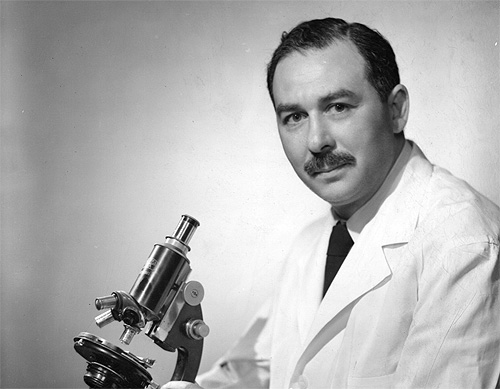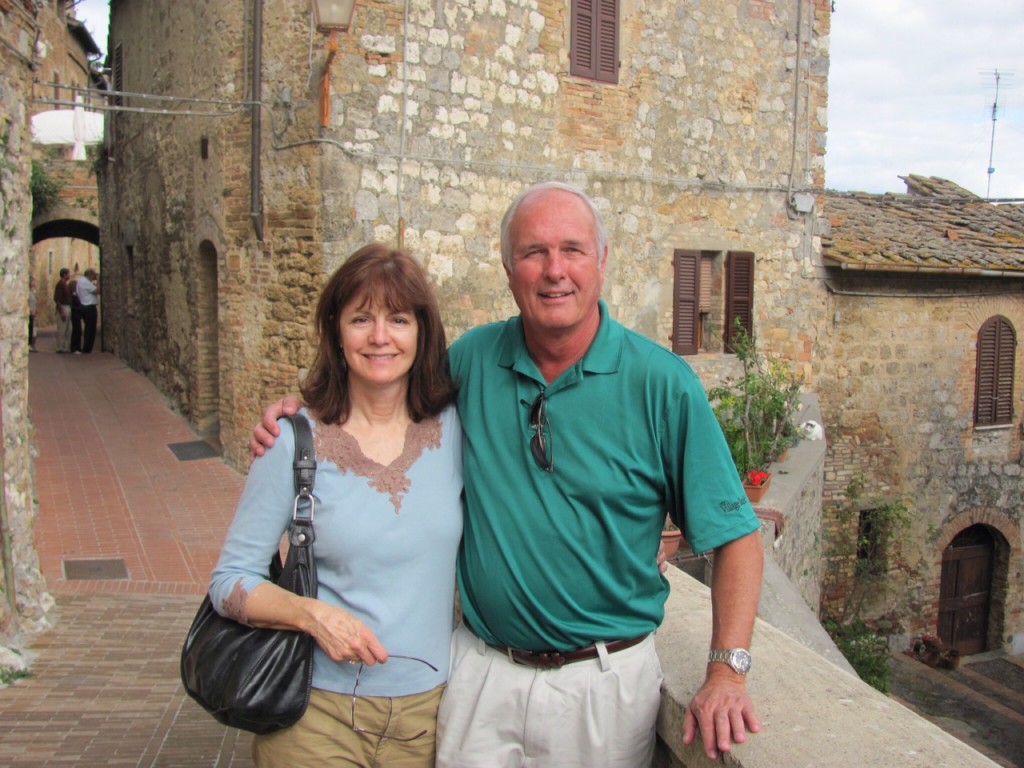By Jordan Leandre
I don’t remember a lot about my treatment process – after all, I was only about 2 1/2. Here is some stuff that I do remember.
By Jordan Leandre
I don’t remember a lot about my treatment process – after all, I was only about 2 1/2. Here is some stuff that I do remember.
Whether you’re trying to lose weight, gain weight, or just stay healthy, the New Year always brings a new set of goals and resolutions. While this change in lifestyle can often feel daunting, achieving goals does not have to be a solo mission.
“Let friends, family members and co-workers know what your goal is and what you are trying to do,” says Nancy Campbell, MS, exercise physiologist with Dana-Farber Cancer Institute. “Having these people around can give you the support you need to reach that goal.”
As you work out healthy goals for 2014, consider these five tips from Campbell and Dana-Farber nutritionist Stacy Kennedy, MPH, RD:
Experts with the U.S. Preventive Services Task Force (USPSTF) have recommended that current smokers and former-smokers who recently quit should undergo an annual low-dose CT scan to screen for lung cancer.
By Buck Rogers
When I woke up from a 40-minute operation to remove a lymph node from my neck, my Ear, Nose & Throat surgeon approached me with another doctor and said, “I’d like you to meet your oncologist.” My life instantly changed; I was diagnosed with chronic lymphocytic leukemia.
After about six weeks of being scared, wondering how much time was left, trying to figure out what to tell our kids and our parents, my wife and I decided that the only choice was to fight as hard as we could. I started by running up and down Village Street in Medway, Mass., barely getting a mile before feeling winded. But the thought of doing nothing was even more frightening, so I kept running.
As 2013 comes to a close, we’re looking back at some of our favorite Insight posts from the last year. From inspiring patient stories to important research, here is our top 10 list:
While the winter holidays are a festive time of year, they can also be very challenging for individuals and families undergoing cancer treatment. Dana-Farber has always tried to make the season a little brighter for its patients and staff.
If you asked a young Susan Mendoza Friedman where she saw her life going, she would not have said fundraising for cancer research and patient care. But, when the dance studio owner and early childhood expert’s best friend of 40 years, Karen Schek, was diagnosed with ovarian cancer in November 2005, that’s exactly what happened.
An analysis of data from the decades-long Nurses’ Health Study revealed that women who ate a one-ounce serving of nuts – any kind of nuts – two or more times a week had a 35 percent lower risk of pancreatic cancer than women who abstained from them. That’s a significant and encouraging piece of news for a field that has had far too little.
As the holiday season fills with family gatherings, travel and potluck parties, it is important to be extra attentive to avoiding germs.
In addition to getting a flu shot, there are a number of other ways to prevent illness. Candace Hsieh, RN, CIC, of Dana-Farber’s Center for Patient Safety, offers some tips for staying healthy and reducing the chance for infection:
While some people claim dairy products can prevent cancer, others argue that dairy could actually increase the cancer risk. There are also concerns that dairy can potentially spur growth in hormone-sensitive cancers, including some forms of ovarian and breast cancer.
Is there a relationship between dairy and cancer? We consulted with the Dana-Farber/Brigham and Women’s Cancer Center (DF/BWCC) Nutrition Department to find out.
When Tara Shuman was diagnosed with breast cancer in August 2012, blogging was not the first thing that came to mind.
“I put together an email to my friends and family to tell them about my diagnosis, and I realized when writing the email that it was very therapeutic,” Shuman says.
This Thanksgiving, as we continue to look for better ways to care for our patients today, and in the future, we also look back and give thanks to the foresight of our founder, Sidney Farber, MD.

Stem cell transplantation (sometimes called bone marrow transplants) is a treatment for certain forms of cancer, such as leukemia, lymphoma, and multiple myeloma, as well as other diseases. But before a patient can receive a transplant, stem cells must be collected from a donor (an allogeneic donation) or from the patient (an autologous transplant).
As November marks Pancreatic Cancer Awareness Month, view the infographic below to learn more about the disease:
One month after undergoing a mammogram live on “Good Morning America,” ABC reporter Amy Robach announced Monday she has been diagnosed with breast cancer and will undergo a double mastectomy later this week.
At 40-years old, Robach is among a population of younger women with breast cancer. According to the American Cancer Society, about 5 percent of all breast cancer cases in the United States occur in women age 40 and younger.
There has been some uncertainty surrounding this question, but recent studies have demonstrated that having a vasectomy has no effect on the risk of prostate or testicular cancer.
Older data – from studies tracking disease rates across broad population groups – suggested a modest connection, while other studies found no such link.
Some people claim that if the fluids and tissues in your body become too acidic – that is, if the concentration of hydrogen in them is too high – your chance of developing cancer increases. Similar claims state that by reducing your intake of certain foods, you can lower your acidity levels, making the body more “alkaline” and less hospitable to cancer.
Dana-Farber Cancer Institute and the Jimmy Fund have long been connected with baseball. So it’s only fitting that the new statues of Dana-Farber founder Sidney Farber, MD, and 12-year-old Einar Gustafson, one of his early patients, reflect this historic relationship.
By Robert Foley
There is a vast amount of information available on nutrition and how to live a healthy lifestyle, but according to Dana-Farber Nutritionist Stacy Kennedy, MPH, RD, “the best approach is to start small.”
“When it comes to nutrition, small changes can make a big difference,” Kennedy says.
One of those changes can be as simple as eating an extra piece of fruit every day. In a recent study, done by the Jagiellonian University Medical College in Krakow, Poland, men and women who ate two or more apples a day reduced their risk of colon cancer by 50 percent. That extra apple a day also helped decrease pancreatic cancer by 25 percent, the study said.
In June 2001, my wife, Angela Palmer, was diagnosed with stage 2 breast cancer while we were living in Tucson, Arizona. This was a huge shock. She had annual mammograms and never had any indications of disease.

She had a lumpectomy and completed about 50 percent of her chemotherapy protocol before we moved to the northeast where our family was located. We arrived in Boston in December 2001, bought a house and became engaged with a tremendous Dana-Farber team including Wendy Chen, MD, MPH, medical oncologist and Jennifer Bellon, MD, radiation oncologist. Angela immediately resumed her therapy and I became her caregiver.